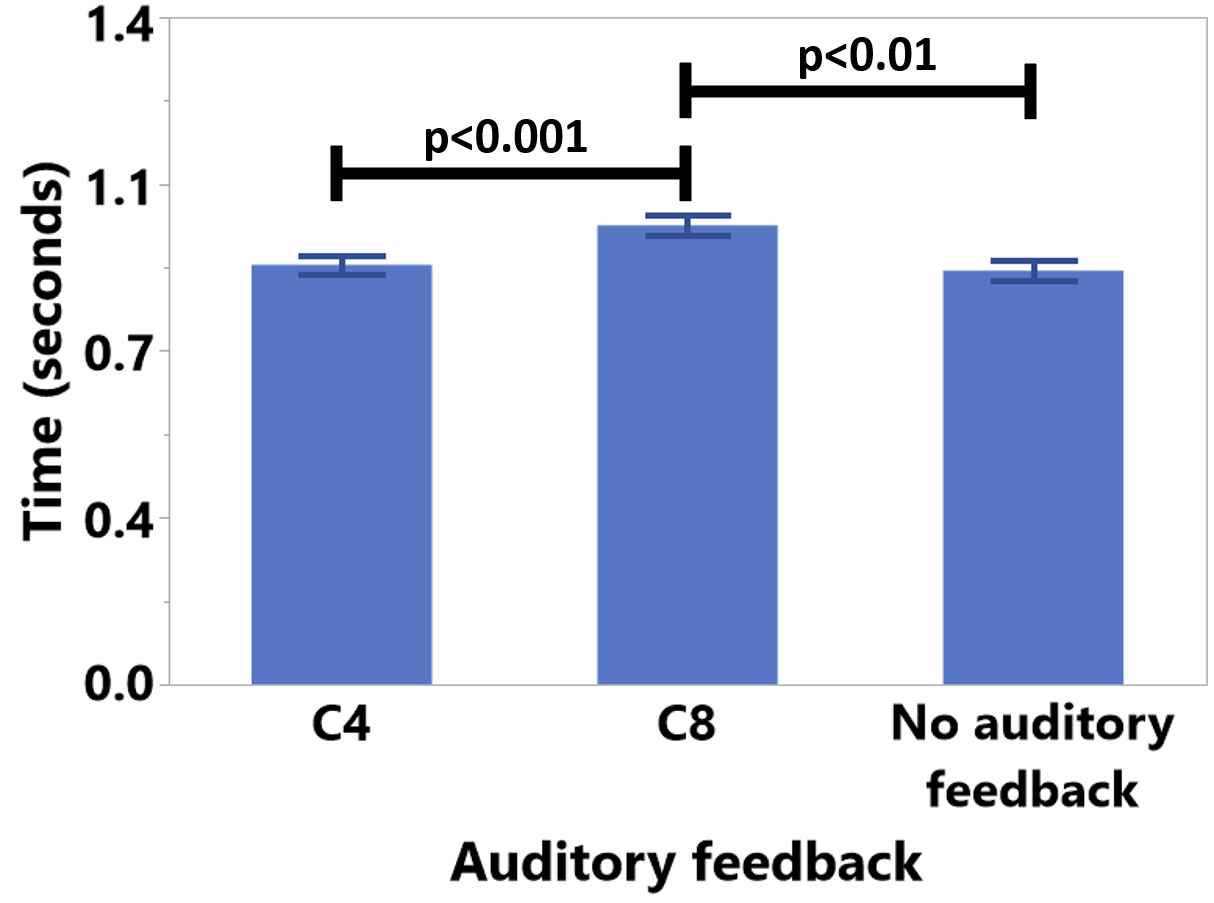
The Effect of Pitch in Auditory Error Feedback for Fitts' Tasks in Virtual Reality Training Systems Inproceedings
Anil Ufuk Batmaz, Wolfgang Stuerzlinger
Abstract:
Fitts' law and the associated throughput measure characterize user pointing performance in virtual reality (VR) training systems and simulators well. Yet, pointing performance can be affected by the feedback users receive from a VR application. This work examines the effect of the pitch of auditory error feedback on user performance in a Fitts' task through a distributed experiment. In our first study, we used middle- and high-frequency sound feedback and demonstrated that high-pitch error feedback significantly decreases user performance in terms of time and throughput. In the second study, we used adaptive sound feedback, where we increased the frequency with the error rate, while asking subjects to execute the task "as fast/as precise/as fast and precise as possible". Results showed that adaptive sound feedback decreases the error rate for "as fast as possible" task execution without affecting the time. The results can be used to enhance and design various VR systems.
